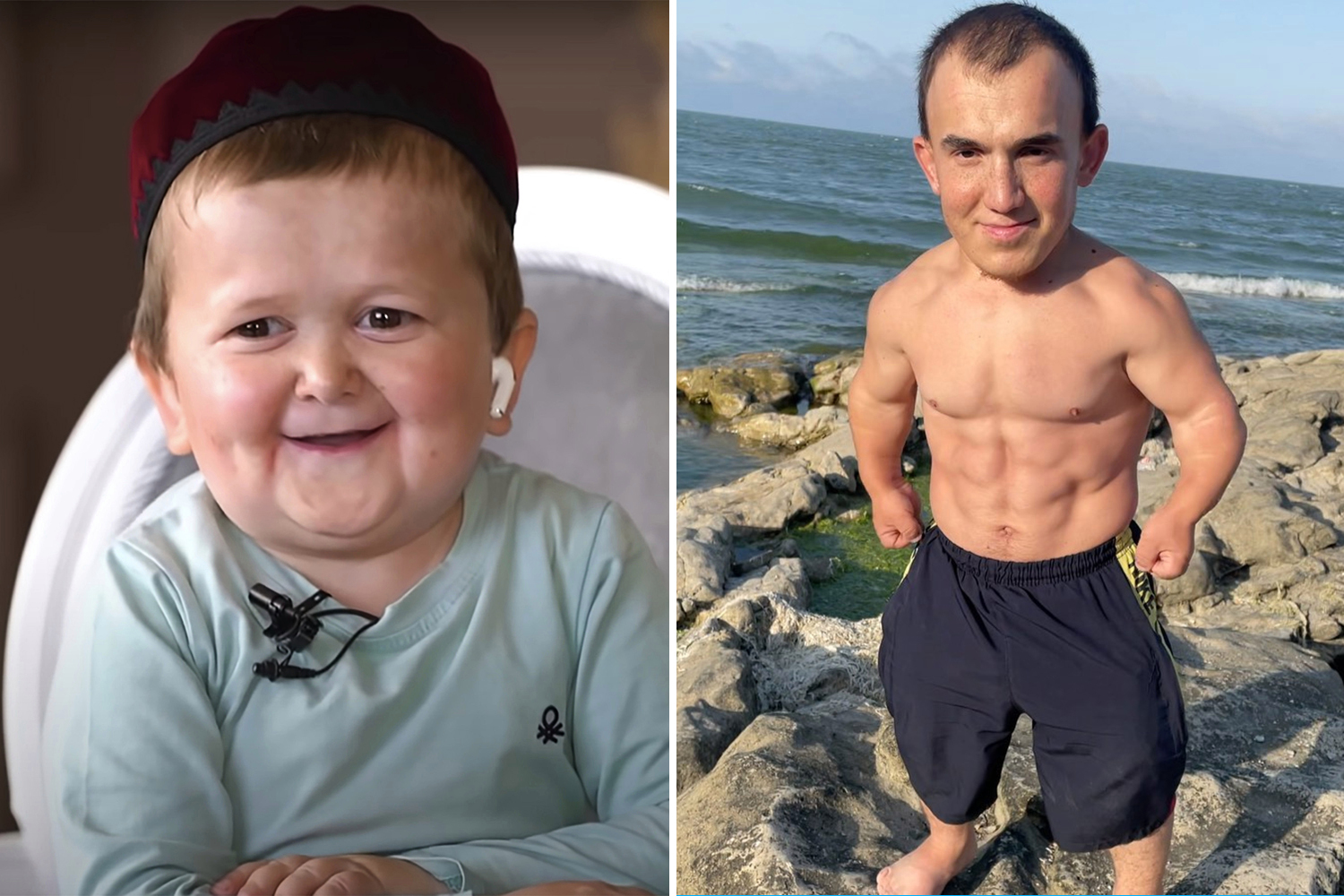The genetic disorder that Hasbulla has is called growth hormone deficiency, also known as pituitary dwarfism. This condition is characterized by a deficiency of growth hormone, which is a hormone that is produced by the pituitary gland. Growth hormone is responsible for regulating growth and development in children and adolescents, and a deficiency of this hormone can lead to a number of health problems, including short stature, delayed puberty, and an increased risk of developing obesity and other chronic diseases.
Growth hormone deficiency can be caused by a number of factors, including genetic mutations, pituitary gland tumors, and radiation therapy to the head or neck. The symptoms of growth hormone deficiency can vary depending on the severity of the condition, but may include short stature, delayed puberty, fatigue, weakness, and an increased risk of developing obesity and other chronic diseases.
There is no cure for growth hormone deficiency, but treatment can help to improve the symptoms and prevent or delay the development of complications. Treatment typically involves taking growth hormone injections, which can help to promote growth and development in children and adolescents. In some cases, surgery may be necessary to remove a pituitary gland tumor or to repair a pituitary gland that has been damaged by radiation therapy.
What Disease Does Hasbulla Have?
Hasbulla Magomedov, known mononymously as Hasbulla, is a Russian blogger and social media personality with dwarfism. He has become popular for his videos on TikTok and Instagram, in which he often makes jokes about his condition.
Hasbulla has a genetic disorder called growth hormone deficiency, also known as pituitary dwarfism. This condition is characterized by a deficiency of growth hormone, which is a hormone that is produced by the pituitary gland. Growth hormone is responsible for regulating growth and development in children and adolescents, and a deficiency of this hormone can lead to a number of health problems, including short stature, delayed puberty, and an increased risk of developing obesity and other chronic diseases.
There is no cure for growth hormone deficiency, but treatment can help to improve the symptoms and prevent or delay the development of complications. Treatment typically involves taking growth hormone injections, which can help to promote growth and development in children and adolescents. In some cases, surgery may be necessary to remove a pituitary gland tumor or to repair a pituitary gland that has been damaged by radiation therapy.
Hasbulla's condition has not stopped him from living a full and active life. He is a successful social media personality and has even competed in mixed martial arts fights. He is an inspiration to others with dwarfism and shows that anything is possible if you set your mind to it.
FAQs about Growth Hormone Deficiency
Growth hormone deficiency (GHD) is a condition that occurs when the pituitary gland does not produce enough growth hormone. This can lead to a number of health problems, including short stature, delayed puberty, and an increased risk of developing obesity and other chronic diseases.
Question 1: What are the symptoms of GHD?
The symptoms of GHD can vary depending on the severity of the condition, but may include:
- Short stature
- Delayed puberty
- Fatigue
- Weakness
- An increased risk of developing obesity and other chronic diseases
Question 2: What causes GHD?
GHD can be caused by a number of factors, including:
- Genetic mutations
- Pituitary gland tumors
- Radiation therapy to the head or neck
Question 3: How is GHD diagnosed?
GHD is diagnosed through a blood test that measures the levels of growth hormone in the blood. A doctor may also order an MRI scan of the pituitary gland to look for any tumors or other abnormalities.
Question 4: How is GHD treated?
There is no cure for GHD, but treatment can help to improve the symptoms and prevent or delay the development of complications. Treatment typically involves taking growth hormone injections, which can help to promote growth and development in children and adolescents. In some cases, surgery may be necessary to remove a pituitary gland tumor or to repair a pituitary gland that has been damaged by radiation therapy.
Question 5: What is the prognosis for people with GHD?
The prognosis for people with GHD depends on the severity of the condition and the age at which it is diagnosed. With early diagnosis and treatment, most people with GHD can live full and active lives.
Question 6: Is there anything I can do to prevent GHD?
There is no known way to prevent GHD. However, early diagnosis and treatment can help to improve the symptoms and prevent or delay the development of complications.
Summary
GHD is a serious condition that can have a significant impact on a person's health and development. However, with early diagnosis and treatment, most people with GHD can live full and active lives.
Next Article Section: Living with GHD
Tips for Living with Growth Hormone Deficiency
Growth hormone deficiency (GHD) is a serious condition that can have a significant impact on a person's health and development. However, with early diagnosis and treatment, most people with GHD can live full and active lives.
Here are five tips for living with GHD:
Tip 1: Get regular medical checkups. Regular medical checkups are important for monitoring your health and ensuring that you are getting the treatment you need.
Tip 2: Take your medication as prescribed. If you are taking growth hormone injections, it is important to take them exactly as prescribed by your doctor. Skipping doses or not taking your medication correctly can interfere with your treatment and prevent you from getting the best possible results.
Tip 3: Eat a healthy diet. Eating a healthy diet is important for everyone, but it is especially important for people with GHD. A healthy diet can help you to maintain a healthy weight and reduce your risk of developing obesity and other chronic diseases.
Tip 4: Get regular exercise. Regular exercise is another important part of a healthy lifestyle for people with GHD. Exercise can help you to build muscle strength, improve your cardiovascular health, and reduce your risk of developing obesity and other chronic diseases.
Tip 5: Join a support group. Joining a support group can be a great way to connect with other people who have GHD. Support groups can provide you with emotional support, information about GHD, and tips for living with the condition.
Summary
Living with GHD can be challenging, but it is possible to live a full and active life with the right care and support. By following these tips, you can help to improve your health and well-being.Next Article Section: The Benefits of Growth Hormone Therapy
Conclusion
Growth hormone deficiency (GHD) is a serious condition that can have a significant impact on a person's health and development. However, with early diagnosis and treatment, most people with GHD can live full and active lives.
This article has explored the causes, symptoms, diagnosis, and treatment of GHD. We have also provided tips for living with GHD and discussed the benefits of growth hormone therapy. We hope that this information has been helpful and informative.
If you think you may have GHD, it is important to see a doctor for diagnosis and treatment. Early diagnosis and treatment can help to improve your health and well-being.
Unveiling The Gibb Legacy: Discoveries And Insights Into Maurice Gibb's Children
Unveiling The Truth: Unraveling The Enigma Of Eva Marcille's Health
Unveiling The Heart Of Cody Johnson's Family: Secrets And Stories Revealed

Hasbulla Magomedov finds a new opponent 'Tain' to take on after 'Mini

What medical condition does Hasbulla have?
ncG1vNJzZmidnZ7BrbGNrGpnraNixKa%2F02ZpZ5mdlsewusCwqmebn6J8uLTArWSdoaOarrSxjJ2mnqtdna60rtSlo5plmJbDpnrHraSl